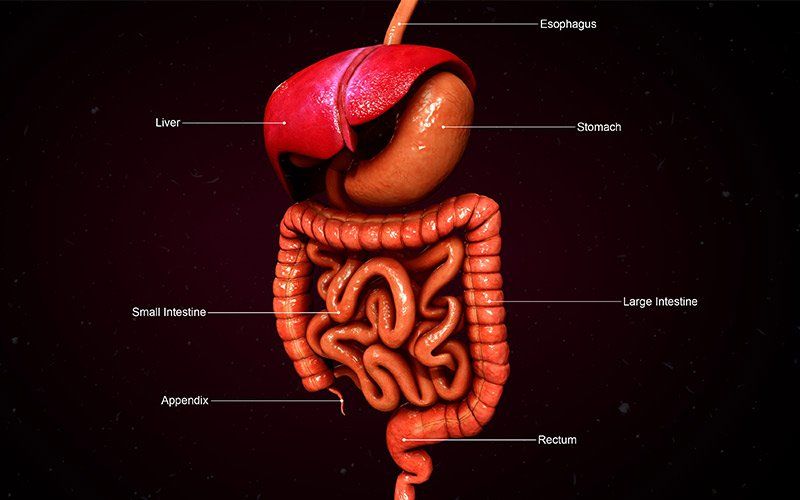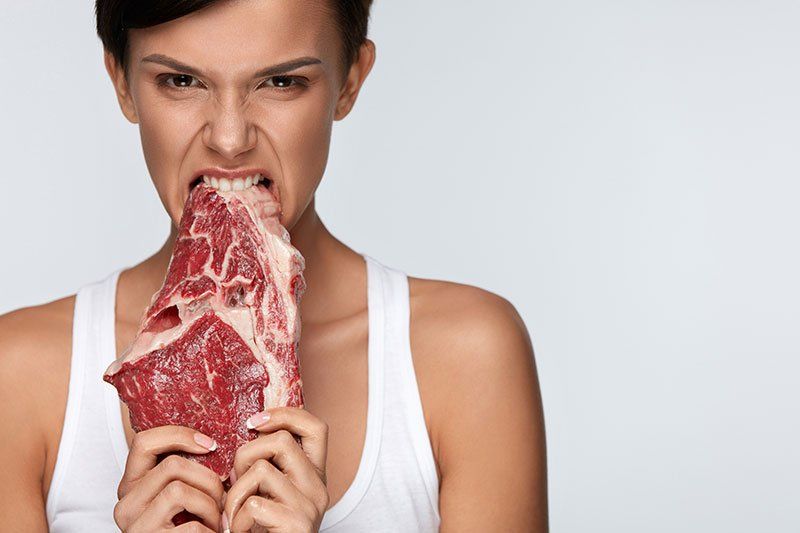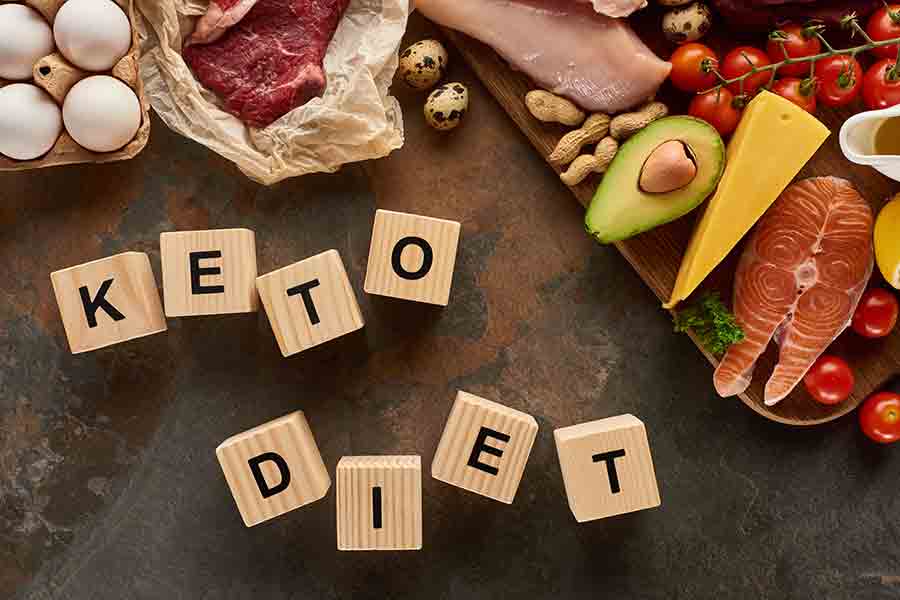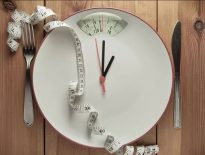How much protein is too much protein is a long-standing question. However, it is mostly driven by the bad interpretation of good information.
This question always takes me back to my grad school days.
I was in grad school studying human metabolism while my wife was an undergrad studying exercise science. Early one semester, she tells me that I have to sit in on one of her classes.
“The professor sounds just like you! You would really like his class!”
She continued…
“he even offered a no strings attached A in the class to anyone who can find randomized controlled research stating that too much protein is bad for the kidneys.”
My eyes got big and I got excited. What he was saying at the time was against the grain. However, I knew he was right and couldn’t wait to sit in on his classes. I was not disappointed.
Glynn’s Guide:
Takeaways that won’t fail you
- Many studies have shown no detrimental effects from consuming greater than 3.5g/kg/day over an extended period.
- This controversy arose from research done on patients in renal failure. It does not apply to healthy individuals.
- There appears to be an upper ceiling to the benefits more protein for athletes. This is based on absorption rates, quality of protein, bioavailability, amount of metabolically active tissue, etc.
- Athletes definitely require more protein than sedentary individuals.
- Bodybuilders are outliers when it comes to protein consumption.
Turns out, the professor was Jose Antonio Ph.D.
He went on to found and head up the ISSN (International Society of Sports Nutrition). This is a very influential group and is the only non-profit academic society dedicated to promoting the science and application of evidence-based sports nutrition and supplementation.
Trust me when I say, the industry needed someone like him!
With that said, let’s zero in on protein. We’ll look at:
- How we use protein.
- What happens when we eat a lot of protein or too little.
- The different types of protein.
- How different populations view and use protein.
But, we’ll ultimately answer this question. What happens when you eat too much protein?
How much protein do you need (to maintain a positive nitrogen balance)?
Protein is essential because of its amino acids, which are used by our body to build our own unique proteins.
The recommended dietary intakes for protein were established to eliminate the deficiency. They were determined using sedentary individuals. But this did not take into account individuals who are active.
They have been updated several times by different organizations throughout the world. And now include suggestions for active individuals and athletes.
Nonetheless, the primary objective in determining the recommended intakes is to maintain nitrogen balance.
What does this mean?
Protein is the only macronutrient to contain the element nitrogen. We can measure our nitrogen intake vs our nitrogen output (urine, feces, hair, skin, etc.) to find the balance. This, of course, happens in the lab.
How to calculate protein needs
Individual needs are based on the following criteria:
- Quality of protein source (meat vs beans and rice)… for us nerds, high availability of indispensable amino acids. We’ll discuss this in more detail further along.
- Physiologic state (Are you healing or sick? You may need more.)
- Growth and body size (a more muscular individual will require more).
- Level of energy intake (too few calories from fat and CHO will cause the oxidation of protein via gluconeogenesis to supply energy).
To to calculate protein needs the current minimum RDI for sedentary individuals over the age of 19 is:
- Females: 0.8g/kg/day. So, a 120 lb female needs a minimum of 44g protein a day.
- Males: 0.8g/kg/day. So, a 170 lb male needs a minimum of 62g protein a day.
Those numbers represent a minimum to maintain nitrogen balance. Again, this is for sedentary individuals.
Protein intake calculator
Enter your information below to calculate protein needs.
Protein Calculator
Do athletes need more protein?
You bet!
The suggestions seem to be all over the place depending on which organization you follow. But, nonetheless, the average for both males and females engaging in intense exercise is 1.6g/kg/day.
This means an active female weighing 120 lbs will need a minimum of 87g/day. Still fairly easy to accomplish.
There are too many factors to generalize one’s needs based on the above criteria. I’m confident the range for athletes should be anywhere from 1.6g/kg/day to 2.5g/kg/day. This is dependant on the type of activity/sport.
There is one outlying circumstance concerning additional needs for bodybuilders. I’ll cover that subject in a section further down. And bodybuilders don’t concern themselves with the idea of consuming unhealthy amounts of protein.
Last I checked, none of them have died from excess protein consumption.
Protein digestion
Unlike starches, the stomach is where the initial “breakdown” happens with protein. It’s the low ph (acidic) of the stomach that does a lot of the work. The acid that’s secreted from the wall of the stomach is hydrochloric acid. This acid denatures the protein. What does that mean?
Well, let’s back up a few steps first
Let me first explain that different amino acids join together. Some of which like water and some that don’t. Now imagine them as a rope in an aqueous (water) environment. All the sides of the amino acids that dislike water fold toward the middle. And the sides that like water stay on the outside.
In other words, the rope crumbles into a ball. Now you need a hot or acidic environment to unravel that rope (denture). That’s where the hydrochloric acid in the stomach comes into play! Make sense?
This acid first unravels (denatures) the rope and activates pepsin (don’t worry about that). This begins to break the unraveling rope into smaller pieces of rope.
We’ll call these smaller pieces of rope polypeptides. The snippets of rope (polypeptides) enter the small intestine. Then they are further broken down to shorter strands. Finally, they are broken down into their amino acid components.
Believe it or not, the stomach is only a small role of the digestion.
The majority occurs in the first part of the small intestine (duodenum). The broken-down components get carried across the small intestine’s wall. They end up in the bloodstream for use wherever needed. Some go directly to the liver via the hepatic portal duct.
Protein rate of absorption
Different protein sources are absorbed at different rates.
There are a lot of factors at play. Just know that not all protein sources are absorbed at the same rate. This is similar to low and high glycemic carbs.
How does our body use protein?
What does your body use amino acids from protein for?
The incomplete list…
- Tissue repair
- Growth
- Tissue replacement
- Making enzymes
- Protein turnover
- Fluid balance
- Antibodies
- Acid-base balance
- Hormones
- Transport proteins
- Blood clotting
- Visual pigments
- And even energy to name a few…
Categories of proteins in our bodies
We turn protein we eat into the following components:
- Enzymes: for use in catalyzingaccelerate or cause a reaction to begin chemical reactions
- Peptide hormones: control many common bodily functions (ACTH, GH, PTH, ADH, etc.)
- Structural proteins: muscle, connective tissue, hair, skin, nails
- Transport proteins: combine with very specific substances in the blood to provide a mode of transportation
- Immunoproteins: also known as antibodies
Types of protein (we eat)
In the broadest sense of terms, there are two types of protein. Complete and incomplete.
A complete protein contains all of the essential amino acids we cannot produce on our own.
An incomplete protein is missing one or several of the essential amino acids. We can keep this simple with the following point. Animal sources of protein are complete and plant-based sources are incomplete.
What about quality differences in proteins?
There are several ways to assess the value of a protein source. Certainly, you’ve heard about food being a complete protein. Again, this means it contains all of the essential amino acids.
What does this application of essential mean? Good question. It means your body cannot synthesize a particular amino acid that is essential to life. We must obtain those amino acids from foods.
Therefore, one way to determine a protein’s quality is to look at its amino acid profile. This is also known as the chemical score.
Biologic value is one method scientists use to calculate the availability of amino acids in food. It looks at the amount of nitrogen retained for growth and maintenance. This is then compared to the amount of nitrogen that has been digested and absorbed. This is stuff for the lab.
Simply put, a food with a high biological value will yield more usable amino acids.
Another method is the protein efficiency ratio (PER). This method compares the weight gain of a growing animal to its protein intake.
We must also consider the methods used in food preparation. Heating can damage some amino acids. Mixing with oxidative or alkaline substances can also alter essential amino acids.
The takeaway here is that not all protein sources are created equal.
Here’s an interesting note. The bioavailability of a protein source increases if we’re not eating enough protein.
Can you eat too much protein?
Several studies state well-adapted healthy adults can tolerate a dietary intake of 3.5 g/kg/day for a prolonged period of time. That’s a lot of protein and requires effort to consume so much daily.
In another study, Durnin states,
“There appears to be no obvious upper limit of protein intake than healthy adults cannot accommodate to. There is evidence that strength-training athletes take as much as 4 g/kg/d, and in experimental studies, 8 g/kg/d has been given for short periods without reported ill effects. In the past some populations appear to have lived off very high intakes of meat, providing 4 ± 8 g of protein per kg per day.”
Let me state how difficult it is to eat that much protein. It’s also expensive!
Let’s look at an example of a 120lb female consuming 4g/kg/day.
That equates as follows:
55kg time 4g/kg/day equals 220 grams of protein a day.
This breaks down to approximately 8 chicken breasts a day, or almost 10, 3 oz sirloin steaks.
Yes, there are plenty of other sources of protein, but that gives you a good idea. If you do the math for a 180lb male, it comes out to a lot more food.
This begs the question, “is there such a thing as too much protein?”
Lemon states,
“the concerns expressed routinely about liver or kidney problems with high protein diets have little scientific support.”
Let’s look at this from another perspective. There does seem to be a ceiling to the benefit of additional protein in athletes.
There is almost no data that exists suggesting additional muscle mass gained from consuming greater than 2-4 g/kg/day. I’ll discuss some discrepancies in the section about bodybuilders below.
What happens if you eat too little protein?
This is a whole other can of worms.
Typically, malnutrition from eating too little protein is not a thing in most industrialized countries.
There is a risk of several diseases that can happen if you eat too little protein. But that is beyond the scope of this article.
I will mention that studies have shown issues in skeletal health with too little protein long term.
What will happen if you eat more protein than you need?
This is an easy answer.
We use it for energy. And if there’s a surplus of energy, it’s stored. Once glycogen storage is peaked, we store the rest as fat.
Please note that this occurs when there is a surplus of calories. Regardless of their source.
How much protein powder is too much?
The answer to how much protein powder is too much is totally dependent on what the rest of your diet looks like.
You’re not going to” “overdose” on protein powder. It’s no different than eating as much chicken as you can. Yes, a different type of protein, but not harmful.
An issue may arise if all you consume is protein powder. Then you’re missing a lot of essential nutrients and fiber. So, I would not suggest making protein powder your exclusive protein source in the absence of other whole foods.
You may laugh and say, “who does that!?” But I do know a person way back in time when Met-Rx was new on the market. It’s all they consumed for weeks. They ended up with a serious constipation issue that needed medical attention. Again, that’s not the norm.
Regardless, you will have more success in improving your physique with most protein coming from whole food. One or two meals a day that use protein powder is perfectly fine.
You can read more about the best types of protein powders in my article Comparing 8 Proteins to Find the Best Protein Powder Supplements For Your Goals.
Read more about the 6 Best Whey Protein Powders – Find the One Best For You.
Also, learn more about BCAA vs Whey Protein: The Definitive Guide [Save Money].
Does eating an excess of protein make you fat?
Excess of any macronutrient will promote fat gain. Protein requires more energy to digest than carbs. It also elicits a much lower insulin response. This makes it less likely to be stored as fat than carbs or fat. This applies when you’re not over-consuming calories in general.
Why do bodybuilders eat so much protein?
There are three factors we need to consider when answering this question.
First of all, bodybuilders obviously have more muscle. This muscle is a biologically active tissue. This means it requires more nitrogen (protein) to maintain the status quo.
We mentioned earlier that one of the criteria dictating protein requirements is body size. More muscle definitely increases body size. Does this apply to adipose tissue (fat)? No, it doesn’t.
Secondly, if they are staying lean, carbohydrates need to be kept low. And if fat is kept to a minimum (we’re not talking ketosis here), calories have to come from somewhere. This is another reason protein is kept high.
Here’s the third reason. Steroid use is more prominent than most realize. Steroids and other anabolic hormones taken exogenouslygrowing or originating from outside the body break the rules of normal metabolism.
The most prominent effect is increased nitrogen retention. This means, they now have the ability to use more of the protein in food to build muscle. There’s a ceiling with natural athletes. This is only one of the improvements that occur. But it’s the most relevant to this article.
Where did the “too much protein” issue come from?
I poured over my old textbooks, found some issues with large amounts of protein, and then found the references in the journals.
What did the referenced journals say?
Exactly what I thought.
The dangers were all associated with research done on individuals in renal failure. So when your kidneys are already compromised, it’s a relevant statement.
Martin states,
“While protein restriction may be appropriate for treatment of existing kidney disease. We find no significant evidence for a detrimental effect of high protein intakes on kidney function in healthy persons after centuries of a high protein Western diet.”
But that does not apply to a healthy person.
How much protein is too much on keto?
It’s essential that you get enough protein if you’re following a ketogenic meal plan.
With ketosis, there are several systems that still rely on glucose exclusively. We obtain this glucose via gluconeogenesisthe making of glucose from a noncarbohydrate source. Protein supplies the necessary building blocks.
On the flip side, it is possible to eat more protein than what is healthy on keto and not enough fat.
This results in a higher level of gluconeogenesis. And this will lead to more glucose production than you want.
Is it detrimental to one’s health? No.
However, it will slow down the progress you expect from being in ketosis.
Protein and aging
Adults lose muscle mass as they age. Especially if they are not strength training to maintain the biologically active tissue. But there’s another factor to consider. Their ability to absorb protein.
Studies have shown that as we age our ability to readily absorb the necessary protein diminishes.
A more rapidly absorbed protein has been shown in studies to be beneficial to the aging digestive tract. Whey protein is an example of a rapidly absorbed protein. Also, Fujita states,
“a bout of aerobic exercise restores the anabolic response of muscle proteins to insulin by improving endothelial function and Akt/mTOR signaling in older subjects.”
In other words, an exercised muscle is more sensitive to insulin. Remember, insulin is required for muscle protein synthesis.
What if you only ate protein?
This can lead to something called starving rabbit syndrome. BUT, despite hearing about this somewhere along my educational path. It’s not covered in the academic literature.
What does this mean?
It’s something that would only happen under extreme circumstances. And it’s hardly worth mentioning. This is because it would require someone to exclusively eat super lean meat, such as rabbit meat. Thus eliminating all fats and carbohydrates, which is not an easy task.
Besides, you just don’t hear about this ever happening.
Conclusion on eating too much protein
I can see why Jose Antonio Ph.D. is willing to offer an A for finding randomly controlled research stating large amounts of protein causes renal problems. I couldn’t find any.
What I did find is plenty of supporting research for no issues. Considering the upper limits of protein actually researched, 4g/kg/day is safe.
Although, we can definitely eat too little protein.
We must also review the ceiling of benefits with protein. Depending on your size and muscle mass, 2-4g/kg/day seems to be the max we can use before converting to glucose.
Bodybuilders (or any athlete) on steroids do not play by the metabolic rules. They can get away with eating and utilizing more protein.
So, please worry more about how much sugar you’re consuming than how much protein you’re eating.
Questions for you
Let me know in the comments below. Have you had a problem with high protein intake?
Frequently asked questions on protein consumption
Are too many protein shakes bad for you?
Only if you’re not eating enough fiber. Protein shakes are a complete source of protein. They’re also convenient and a good bang for the buck.
What happens when too much protein is consumed?
Excess protein is simply turned into glucose, used as energy or stored as fat.
Will too much protein damage the kidneys?
No. “The concerns expressed routinely about liver or kidney problems with high protein diets have little scientific support.”
Can too much protein kill you?
No. You would likely not be able to fit enough into your GI tract to reach a toxic level.
Will too much protein make you sick?
No
Can too much protein cause kidney stones?
The jury is still out about this one. There is a hint that excess animal protein can contribute to the issue. But it’s not the only contributing factor.
How much protein should I take?
If we’re talking about whey protein, 20-40 grams is more than enough. The lower end of the scale applies to women and the upper end of applies to larger men.
References on protein consumption
Yves Boirie, Martial Dangin, Pierre Gachon, Marie-Paule Vasson, Jean-Louis Maubois, and Bernard Beaufrère, Slow and fast dietary proteins differently modulate postprandial protein accretion, PNAS December 23, 1997 94 (26) 14930-14935
Martial Dangin, Christelle Guillet, Clara Garcia‐Rodenas, et al., The Rate of Protein Digestion affects Protein Gain Differently during Aging in Humans, The Journal of Physiology, Volume 549, Issue 2, June 2003, Pages 635-644.
JVGA Durnin, P Garlick, AA Jackson, B SchuÈ rch, PS Shetty and JC Waterlow, Report of the IDECG Working Group on lower limits of energy and protein and upper limits of protein intakes, European Journal of Clinical Nutrition (1999) 53, Suppl 1, S174-S176.
Satoshi Fujita, Blake B. Rasmussen, Jerson G. Cadenas, Micah J. Drummond, Erin L. Glynn, Fred R. Sattler, and Elena Volpi, Aerobic Exercise Overcomes the Age-Related Insulin Resistance of Muscle Protein Metabolism by Improving Endothelial Function and Akt/Mammalian Target of Rapamycin Signaling, Diabetes 2007 Jun; 56(6): 1615-1622.
Groff, JL et al. Advanced Nutrition and Human Metabolism, St. Paul, MN: West Publishing Company, 1995.
Jane E Kerstetter, Kimberly O O’Brien, Karl L Insogna; Dietary protein, calcium metabolism, and skeletal homeostasis revisited, The American Journal of Clinical Nutrition, Volume 78, Issue 3, 1 September 2003, Pages 584S–592S
Jane E. Kerstetter, Kimberly O. O’Brien, Karl L. Insogna; Low Protein Intake: The Impact on Calcium and Bone Homeostasis in Humans, The Journal of Nutrition, Volume 133, Issue 3, 1 March 2003, Pages 855S–861S
Peter W.R.Lemon, Dietary protein requirements in athletes, The Journal of Nutritional Biochemistry, Volume 8, Issue 2, February 1997, Pages 52-60.
William F Martin, Lawrence E Armstrong, and Nancy R Rodriguez, Dietary protein intake and renal function, Nutrition & Metabolism, 2005 2:25.
Jacques R. Poortmans & Olivier Dellalieux, Do Regular High Protein Diets Have Potential Health Risks on Kidney Function in Athletes? International Journal of Sports Nutrition and Exercise Metabolism, Volume 10 Issue 1, March 2000.
Maurice E. Shils, James A. Olson, Moshe Shike, A. Catherine Ross. Modern Nutrition in Health and Disease. Baltimore, MD: Williams & Wilkins. 1999.
M. A. Tarnopolsky, S. A. Atkinson, J. D. MacDougall, A. Chesley, S. Phillips, and H. P. Schwarcz, Evaluation of protein requirements for trained strength athletes, Volume 73Issue 5 November 1992, Pages 1986-1995.
Guoyao Wu, Dietary protein intake and human health, Food Funct., 2016, 7, 1251-1265.













